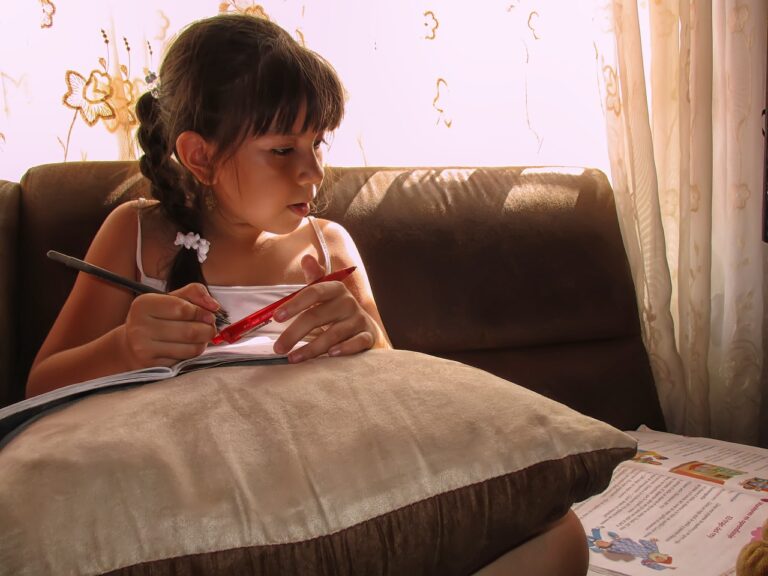O que são comparativos e superlativos?
Usamos adjetivos comparativos para expressar como duas pessoas ou coisas são diferentes.
Já os adjetivos superlativos mostram como uma pessoa ou coisa se destaca entre todas as outras de sua categoria.
Exemplos:
-
Mick is taller than Jack. (Mick é mais alto que Jack.)
-
Mick is the tallest person in the family. (Mick é a pessoa mais alta da família.)
Comparativos
1. Usando “more” para adjetivos longos
Se o adjetivo tem duas ou mais sílabas, adicionamos “more/less” antes dele para formar o comparativo.
Exemplos:
-
This hotel is more expensive than the last hotel we stayed at. (Este hotel é mais caro que o último em que nos hospedamos.)
-
Reading is more interesting than watching television. (Ler é mais interessante do que assistir televisão.)
-
The sea here is more beautiful than the sea in my country. (O mar aqui é mais bonito do que o mar no meu país.)
2. Adicionando “-er” para adjetivos curtos
Para adjetivos de uma sílaba, ou duas sílabas terminando em “-y”, adicionamos “-er” ao final.
Exemplos:
-
Your house is bigger than mine. (Sua casa é maior que a minha.)
-
Taking the bus is cheaper than taking the car. (Pegar o ônibus é mais barato do que ir de carro.)
-
This box is heavier than that one. (Esta caixa é mais pesada do que aquela.)
Observação: Se o adjetivo termina em uma vogal seguida de consoante (como “big”), dobramos a consoante final: “bigger”, “fatter”, “thinner”.
3. Comparativos irregulares
Alguns adjetivos não seguem as regras acima.
Exemplos:
-
good → better (bom → melhor)
-
bad → worse (ruim → pior)
-
far → further/farther (longe → mais longe)
-
fun → more fun (divertido → mais divertido)
Frases:
-
Your cooking is better than my cooking. (Sua comida é melhor que a minha.)
-
Arriving late is worse than arriving early. (Chegar atrasado é pior do que chegar cedo.)
-
Their house is further from here than our house. (A casa deles é mais longe daqui do que a nossa.)
-
Going out is more fun than staying at home. (Sair é mais divertido do que ficar em casa.)
Usando “than”
Ao comparar duas coisas, usamos “than” para indicar a comparação.
Exemplo:
-
Living in the city is better than living in the country. (Viver na cidade é melhor do que viver no campo.)
Se o contexto já estiver claro, podemos omitir a segunda parte da comparação.
Exemplo:
-
Living in the city is more expensive. (Viver na cidade é mais caro.)
Usando “less”
Para indicar que algo tem uma qualidade inferior, usamos “less” antes do adjetivo.
Exemplos:
-
Walking is less tiring than running. (Caminhar é menos cansativo do que correr.)
-
Australia is less populated than China. (A Austrália é menos populosa que a China.)
-
Hamburgers are less healthy than vegetables. (Hambúrgueres são menos saudáveis do que legumes.)
Superlativos
Usamos adjetivos superlativos para comparar uma pessoa ou coisa com várias outras, indicando que ela se destaca em alguma característica.
Exemplo:
-
Paris is the most beautiful city I’ve ever seen. (Paris é a cidade mais bonita que já vi.)
1. Usando “the most”/”the least” para adjetivos longos
Para adjetivos com duas ou mais sílabas, adicionamos “the most”/”the least” antes do adjetivo.
Exemplos:
-
She’s the most determined candidate we’ve seen today. (Ela é a candidata mais determinada que vimos hoje.)
-
It’s the least difficult part of my job. (É a parte menos difícil do meu trabalho.)
-
This is the most successful year the company’s ever had. (Este é o ano mais bem-sucedido que a empresa já teve.)
2. Adicionando “-est” para adjetivos curtos
Para adjetivos de uma sílaba, ou duas sílabas terminando em “-y”, adicionamos “-est” ao final, precedido de “the”.
Exemplos:
-
It’s the shortest route to the stadium. (É a rota mais curta até o estádio.)
-
What’s the longest flight you’ve ever taken? (Qual foi o voo mais longo que você já fez?)
-
He’s the nicest guy I’ve met here. (Ele é o cara mais legal que conheci aqui.)
Observação: Se o adjetivo termina em uma vogal seguida de consoante (como “sad”), dobramos a consoante final: “saddest”, “fittest”, “hottest”.
3. Superlativos irregulares
Alguns adjetivos têm formas superlativas irregulares.
Exemplos:
-
good → best (bom → melhor)
-
bad → worst (ruim → pior)
-
far → furthest/farthest (longe → mais distante)
-
fun → most fun (divertido → mais divertido)
Frases:
-
Is this the best place to eat in town? (Este é o melhor lugar para comer na cidade?)
-
Yesterday’s performance was my worst ever. (A apresentação de ontem foi a pior que já tive.)
-
Alaska is the furthest state from the equator. (O Alasca é o estado mais distante do equador.)
Outras Estruturas de Comparação
1. Estrutura “as…as” (tão/tanto…quanto)
Usamos a estrutura “as + adjetivo + as” para indicar que duas coisas ou pessoas são iguais em alguma característica.
Exemplos:
-
She is as tall as her brother. (Ela é tão alta quanto o irmão.)
-
This book is as interesting as the movie. (Este livro é tão interessante quanto o filme.)
-
He is as fast as a cheetah. (Ele é tão rápido quanto uma chita.)
2. Estrutura “not as…as” (não tão/tanto…quanto)
Usamos “not as + adjetivo + as” para indicar que algo ou alguém possui menos de uma determinada qualidade em comparação com outra coisa ou pessoa.
Exemplos:
-
This car is not as expensive as that one. (Este carro não é tão caro quanto aquele.)
-
She is not as experienced as her colleague. (Ela não é tão experiente quanto a colega.)
-
The test was not as difficult as I expected. (A prova não foi tão difícil quanto eu esperava.)
Dicas Importantes
1. Evite usar “more” com adjetivos que já utilizam “-er”
Não combine “more” com adjetivos que formam o comparativo com “-er”.
Errado: This is more faster than that.
Certo: This is faster than that.
2. Use “the” com superlativos
Sempre utilize o artigo definido “the” antes de adjetivos superlativos.
Errado: He is tallest in the class.
Certo: He is the tallest in the class.
3. Não use superlativos ao comparar apenas duas coisas
Ao comparar duas coisas, utilize o comparativo, não o superlativo.
Errado: This is the tallest of the two.
Certo: This is the taller of the two.
Common Irregular Adjectives
Adjective | Comparative | Superlative |
|---|---|---|
| good | better | best |
| bad | worse | worst |
| far | farther/further | farthest/furthest |
| much | more | most |
| many | more | most |
| little (quantity) | less | least |
| well (health/state) | better | best |
| ill (formal/rare) | worse | worst |
| old | older/elder | oldest/eldest |
| late | later / latter | latest / last |
| near | nearer / nearer/further | nearest / next |
Comparative & Superlative Quiz
Quiz Summary
0 of 7 Questions completed
Questions:
Information
You have already completed the quiz before. Hence you can not start it again.
Quiz is loading…
You must sign in or sign up to start the quiz.
You must first complete the following:
Results
Results
0 of 7 Questions answered correctly
Your time:
Time has elapsed
You have reached 0 of 0 point(s), (0)
Earned Point(s): 0 of 0, (0)
0 Essay(s) Pending (Possible Point(s): 0)
Categories
- Not categorized 0%
- Review
- Answered
- Correct
- Incorrect
-
Question 1 of 7
1. Question
Correct / 20 PointsIncorrect / 20 Points -
Question 2 of 7
2. Question
- The clothes here are (good) than in my town.
- That’s my (bad) mark ever!
- It’s (far) than I thought – I think we’re lost.
- That’s the (disgusting) meal I’ve ever had!
- I hope your team’s (lucky) today than last week.
- They’re (happy) in their new school than in their old one.
- It’s the (good) song on the album.
- Your spaghetti sauce is (tasty) than my mum’s.
Correct / 8 PointsIncorrect / 8 Points -
Question 3 of 7
3. Question
CorrectIncorrect -
Question 4 of 7
4. Question
CorrectIncorrect -
Question 5 of 7
5. Question
CorrectIncorrect -
Question 6 of 7
6. Question
CorrectIncorrect -
Question 7 of 7
7. Question
CorrectIncorrect
















